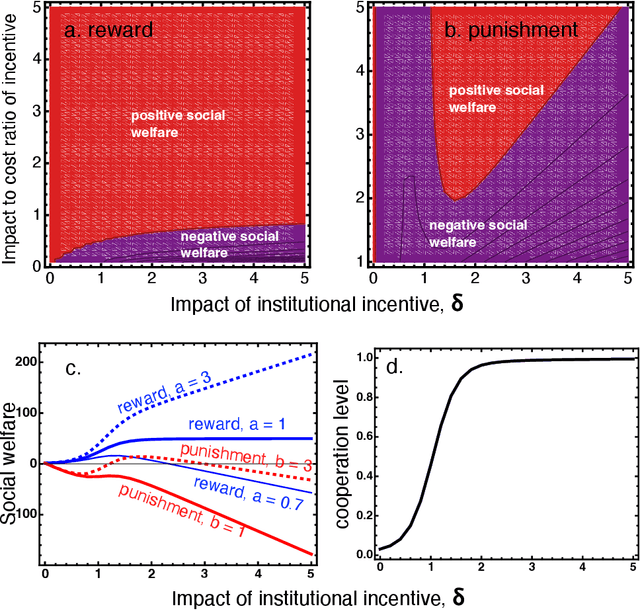Evolutionary mechanisms that promote cooperation may not promote social welfare
Paper and Code
Aug 09, 2024

Understanding the emergence of prosocial behaviours among self-interested individuals is an important problem in many scientific disciplines. Various mechanisms have been proposed to explain the evolution of such behaviours, primarily seeking the conditions under which a given mechanism can induce highest levels of cooperation. As these mechanisms usually involve costs that alter individual payoffs, it is however possible that aiming for highest levels of cooperation might be detrimental for social welfare -- the later broadly defined as the total population payoff, taking into account all costs involved for inducing increased prosocial behaviours. Herein, by comparatively analysing the social welfare and cooperation levels obtained from stochastic evolutionary models of two well-established mechanisms of prosocial behaviour, namely, peer and institutional incentives, we demonstrate exactly that. We show that the objectives of maximising cooperation levels and the objectives of maximising social welfare are often misaligned. We argue for the need of adopting social welfare as the main optimisation objective when designing and implementing evolutionary mechanisms for social and collective goods.
 Add to Chrome
Add to Chrome Add to Firefox
Add to Firefox Add to Edge
Add to Edge